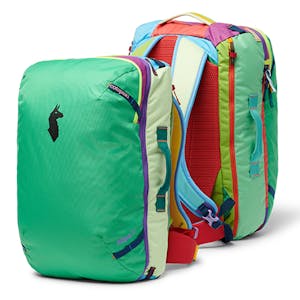Letter of the month
Stories rekindle memories
I have been stirred to write after reading the articles by Shaun Barnett on his recent visits to Waterfall Hut in the Ruahine Ranges, and Aokaparangi Biv in the Tararua Ranges (February and March 2018 issues).
As a New Zealand Forest Service Deer Culler in 1963, I was one of several cullers in the Ruahine Ranges North Western Block, which at that time provided shelter in four tent camps and seven huts, one of which was Waterfall Hut.
There is no argument that Waterfall Hut was my favourite shelter from the storm. In all, I spent 54 nights in this hut and admit it was like a home away from home. That it is still providing shelter to trampers and remains in its original condition, is most certainly a credit to DOC.
As Barnett points out in his article, ‘A worthy destination’, I can only applaud the decision of DOC to build the new two-man Aokaparangi Biv and relocate it where it can be seen on the descent from the mountaintop. I once failed to find the old hut and survived 40 hours on the tops, in a storm, before being lifted off Aokaparangi by the sterling efforts of a helicopter crew. Aokaparangi Biv now offers a safe haven from the Tararua elements. Well done DOC.
– Mike Peacock, Auckland
– Mike receives a SOG Sync II multi-tool worth $120 from www.nzammo.co.nz. Readers, send your letter to editor@lifestylepublishing.co.nz for a chance to win.
Rescue insurance impractical
Chris Prudden’s call for tourists to have rescue insurance (‘It’s time to buy rescue insurance’, January 2018) is one of those ideas that looks like a no-brainer when examined superficially but becomes a can of worms when scrutinised more carefully.
If you require insurance, that means you’re going to send a bill – to the insured and the uninsured. Who decides how much? How do we charge for volunteer time? Do you recoup training time and costs? How do you ensure the uninsured pay – especially those who may leave the country?
Will the prospect of a bill put lives at risk? I ran a search for an overdue kayaker. His pick-up person delayed calling for help until dusk because he was worried that either he or his missing mate would get a bill. What should have been a 20-minute helicopter pick-up mission turned into a difficult search involving land- and water-based teams operating in a gorge in the dark – and a missing person spending 12 unnecessary hypothermic hours on a riverbank. The possibility of the outcome being much worse because of the delay doesn’t bear thinking about.
When I walked out of the hills a day late, after holing up in a hut beside an uncrossable stream, should I have got a bill from SAR? I can see why my wife called for help, but it turned out I didn’t need it. Maybe she should have got the bill instead?
Would all tourists have to take insurance? Including those coming to visit grandma or attending a conference? Or do they declare an intention to do something adventurous? What’s adventurous? Lake Willkie in the Catlins is a 30-minute boardwalk, but has been the scene of a three-day search.
But apart from the complexities of a charging regime, what this comes down to is compassion and the motivation of the searchers. Sure, rescuing people who make poor choices is frustrating, and I know the heart-sinking feeling when the pager goes off yet again at the wrong time. But I want to live in a society where people who need help can get it and where people who offer to help do so in a non-judgemental way.
– David Barnes, Wellington
Flora and fauna the big issue
Of the seven experts providing comments on the future of our national parks, it is Craig Potton who mentions the fundamental issue when he writes: ‘These acts give primacy to the protection of indigenous flora, fauna…’ (‘The big issues’, February 2018).
Dave Bamford also provided a crucial statement: ‘Visiting our national parks is a privilege, not a right.’
Humans have a habit of considering their own needs and wants before anything else. While that is understandable, failing to consider the needs (and wants) of everything else that lives in our country often comes at a terrible cost to those other living things. Too many species have been pushed to the brink of extinction or beyond. How could we justify tourism and tramping to be yet another factor contributing to this?
I love tramping and happen to live near Auckland. Like many others, I feel the closure of many tracks in the Waitakere Ranges is a loss, but at the same time it is a decision that must be respected to give kauri forests a (better) chance of survival.
One hopes that the rights and needs of the country’s flora and fauna continues to be given top priority and not be forced to give way to human wants.
– Pieter Lunenburg, email







